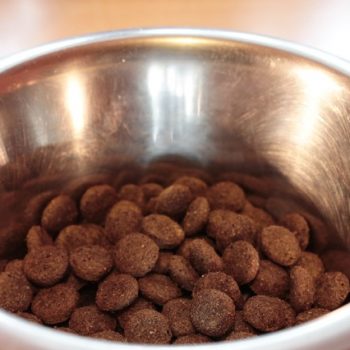Wednesday, August 11th, 2021
This abstract strongly indicates a need for pet parents to consider accuracy before choosing to test.
“Based on these results, the saliva test for food specific IgA and IgM and the ELISA serum test for food specific IgE were not reliable to diagnose adverse food reactions in dogs. Until more data are available, elimination diets remain the reference standard in the diagnosis of this disease.”
This study included both animal hair and saliva as well as synthetic fur and a sterile sample.
Animals: Seven healthy animals (six dogs, one cat); six animals (five dogs, one cat) with atopic dermatitis; 11 samples of synthetic fur and sterile saline.
Read more Are Saliva and/or Blood Tests For Food Allergies Accurate?
Sunday, April 25th, 2021
There has been a lot of recent negative social media buzz on hydrolyzed diets. There’s very little that will put pet parents (myself included) into an emotional tailspin than information regarding something that can harm our four-legged family. This is especially true when the opinion comes from vets that many dog parents see as authority figures and thus the message gets repeated by their followers. Eventually, fear replaces factual information. I’m asking you to hit the pause button on all emotional reactions and consider the following.
What may lead a dog parent down the road of hydrolyzed foods?
The typical scenario starts with a dog owner who is frustrated as their dog deals with various allergic responses to food. Read more The Reality vs The Hype of Hydrolyzed Diets
Wednesday, February 3rd, 2021
An important part of formulating proactive canine diets is consideration to the breed health disposition as well as the individual dog. The Labrador Retriever is a good example of what this might look like.
Labs make great family dogs and have a lot of energy for field work yet pack on the weight easily. They can have a genetic predisposition for this weight gain, and they love to eat so double trouble.
- Skeletal issues are common in the breed and can be a precursor to arthritis at an earlier age than some other breeds. Extra body weight burdening the joints add to the problem.
- Allergies (not necessarily, but not uncommon in this breed)
- Cancers
Read more Feeding the Labrador Retriever
Thursday, August 20th, 2020
Quite simply – no.
Intolerances or allergies can present at any time and if you’ve been feeding every protein you’ve had access to, you are going to be in a very difficult position because elimination diets require a novel (new) protein.
Keep in mind there are various issues that may require a novel protein – in conjunction with veterinary care and diagnostics.
Read more Does Rotating Proteins Guarantee Your Dog Won’t Develop a Food Allergy?
Monday, April 8th, 2019
Most people think of the thyroid gland as being sluggish (hypothyroidism) if their dog gains weight too easily, is lethargic or their coat starts to look sparse or dry. While the thyroid gland does produce hormones that regulate a body’s metabolic rate, we often see the full range and power of those hormones in client’s dogs with an array of symptoms that aren’t always thought of as being related to hypothyroidism.
- Mood swings,
- phobias,
- chronic infections,
- heart abnormalities (including increase in blood pressure),
- food intolerances,
- muscle control/wasting,
- digestive tract issues
- epilepsy/seizures
can all be linked to thyroid dysfunction. Read more Thyroid Dysfunction
Friday, March 29th, 2019
Allergy Season is Here 🌱🌳🌷
Environmental allergies, that is.
Your dog may be sneezing, have runny eyes and nose, be scratching him/herself, including the ever-famous bum scooting along carpets. Some dog owners believe that helping to “boost” the immune system- especially at this time of year- is the key. In fact, what you are seeing is an over-reaction of the immune system, so even it was possible to “boost” it, this is the last thing you’d want to do.
Environmental allergies are tough to subdue, but certain things can help.
Read more Allergy Season
Tuesday, February 26th, 2019
Most pet parents have never heard of this in people much less in dogs. Some veterinarians are on the fence about it being factual, but more and more specialists agree that it happens and can even point to a study.
This is the short abstract dating back to 2002 which discusses a dog with Japanese cedar pollinosis that had oral allergy syndrome (OAS) after ingesting fresh tomato. So, what the heck is OAS to begin with? We might look at it as an immune system that’s an over achiever. For instance, it treats pollen like a foreign invader and because there are some proteins in fruits and veggies that are similar to those in certain pollens, they get treated the same way – by attacking and trying to flush them out of the body via discharges, inflammation, etc. Read more Oral Allergy Syndrome ( Food / Pollen Cross-Reactivity)
Tuesday, February 26th, 2019
Many dog parents are aware that gut health is important for overall wellness and that there is a relationship between gut health and food intolerances and allergies. Inflammation from within is often expressed externally as itching, scratching, and loose stools.
We see problems arise when well-intentioned owners try to treat their dog’s food sensitivity or intolerance issues by adding probiotics and fermented foods -before they’ve eliminated the food triggers.
Although human studies have assessed probiotics for treatment of food allergies, they were done prenatally, in infants and in children and the results were inconsistent. The gut microbiome changes throughout life so more research is needed in determining whether probiotic supplementation can alleviate food allergies in adults. We also have to remember dog’s have different microbiota composition so the results can’t be easily transferred. Read more Fermented Foods – Gut Health – Food Intolerances – there’s more to the story
Tuesday, May 20th, 2014
Eyes shed tears for many reasons, and some are due to serious health problems. Don’t ignore the tearing and staining without seeing your veterinarian. Your dog might pay the ultimate price and lose his/her sight altogether if you assume that what you’re about to read applies to every single dog.
But! – the pictures below are a clear demonstration of how big an impact diet can make.
Read more Stains on Dog’s Face Traced To Food Allergy
Thursday, April 25th, 2013
This relates to the way some people think of boosting the immune system via diet. First, we need to understand what the immune system really is because people seem to talk about if as if it’s a sagging muscle that needs to be lifted in some way.
The immune system involves interferons, chemokines and interleukins – signals that stimulate/activate certain cells. There are antibodies like IgE, IgM, as well as IgG and IgA which have 7 subtypes in total, and all 7 have a preference for parts of different pathogens. There are blood components like cells called lymphocytes, neutrophils, macrophages, eosinophils, monocytes, and more. Read more Boosting The Immune System
Tuesday, December 11th, 2012
I’ve been formulating canine diets since 1998, and my dogs, Zoey and Cassie had IBD and colitis, so it seemed natural that most clients had dogs with the same problem. They related to my experience with GI diseases, and I could certainly relate to theirs. This still holds true, although today’s clients run the gamut from healthy dogs to ones with all types of serious diseases and conditions.
Many dogs with IBD have food allergies and most of their owners live in fear of new food allergies developing. No doubt, it can happen, but it’s not carved in stone. Read more Canine IBD and Food Allergies
Tuesday, August 28th, 2012
This is day 20 of Tori eating Hill’s Z/D and her itching is at least 75% resolved. There’s the possibility that it could be even better, but she happens to have a dad who shows his love by feeding her things that should be avoided right now. Cheese, bites of bread as well as the licking of a plate after he’s eaten most of the egg that was on it…you get the idea. Of course, this works against Tori’s best interest, but saying so gets me nowhere. So, I’m not sure how to resolve it, but I’m pretty darn sure food allergies were Tori’s major issue. Otherwise, Z/D wouldn’t have helped at all. This result is exactly what I’d hoped for – a period of eating a hydrolyzed diet to help make some sense of the multiple possibilities for her chronic itchiness. It’s come about faster than I’d expected – bonus! Read more Hill’s Z/D
Wednesday, August 8th, 2012
Sometimes we need a stop-gap measure to decipher the cause of itchy skin. Let me use our Tori as an example.
Tori has multiple health problems and three of them can cause her to mutilate her muzzle, ears, paws, neck, bum, and do some hobbling while she air-scratches. The most concerning is Syringomyelia (SM) which can cause her to roll around and scratch like a fiend. The second is that that she has environmental allergies, and third is food allergies. Because all three cause her to scratch frantically, it’s anyone’s guess as to why she does it at any given time. Trial and error brought a fresh food diet for her. She tolerated fish (cod and tilapia only), eggs, carrots and rice. This has been her diet for more than one year and she was doing beautifully. But this past month has been hellish for her. Read more Multiple Possibilities for a Dog’s Itchy Skin
Wednesday, April 18th, 2012
You’re feeding an over-the-counter (OTC) venison diet…or are you? It turns out that some commercial diets labelled as containing venison as the only meat source, can include other things that may trigger an allergic response. “Three of the four over the counter (OTC) venison canine dry foods with no soy products named in the ingredient list were ELISA positive for soy; additionally, one OTC diet tested positive for beef protein with no beef products listed as an ingredient list. One OTC venison diet was not found to be positive for soy, poultry or beef proteins. However, none of the four OTC venison diets could be considered suitable for a diagnostic elimination trial as they all contained common pet food proteins, some of which were readily identifiable on the label and some that were only detected by ELISA.” Read more So You’re Feeding a Venison Diet – Really?
Tuesday, March 13th, 2012
The most common foods that dogs are allergic to are said to be beef, wheat, and dairy. In fact, a food allergy develops as the result of an immune system response. The immune system decides that a certain protein is an enemy, and it goes about dealing with it by releasing histamine and other chemicals into circulation on a search and destroy mission. In order for this to happen, the body needs to identify the allergen first, so the foods that are most likely to be allergens are simply the ones the dog has been exposed to in the past. Beef, wheat and dairy may be perfectly fine for a dog that’s eaten nothing but fish and sweet potato in the past because all three foods are new, and the body hasn’t decided to wage chemical warfare. Read more Food Allergy Myths















